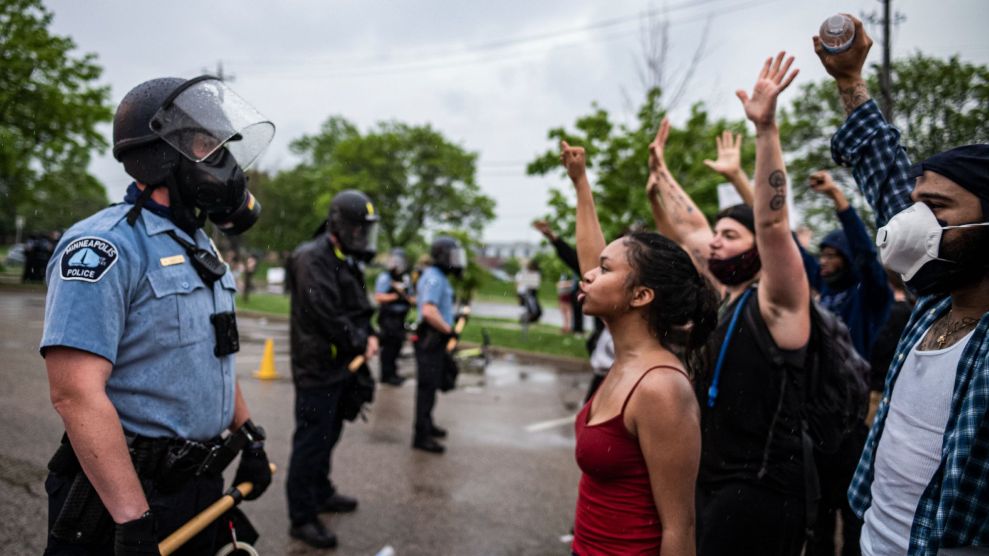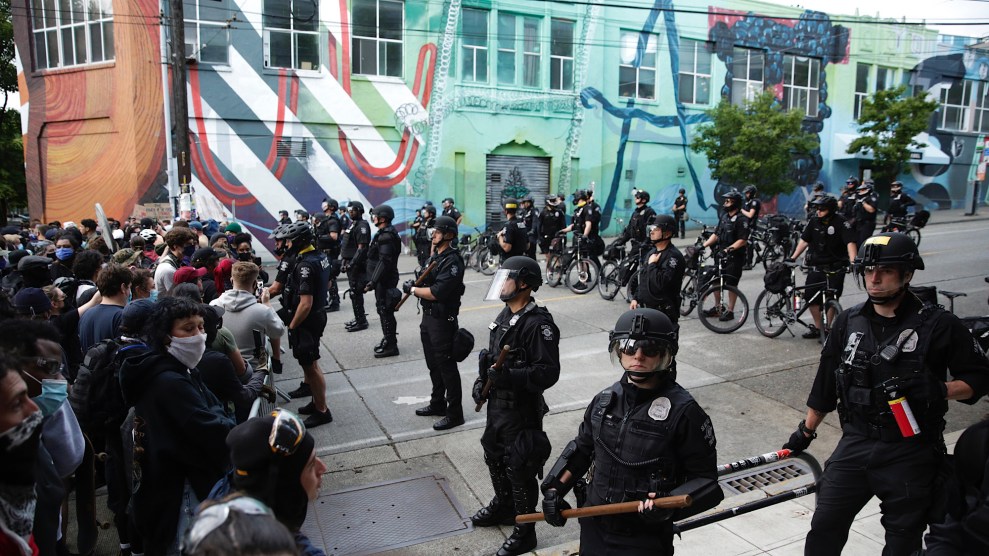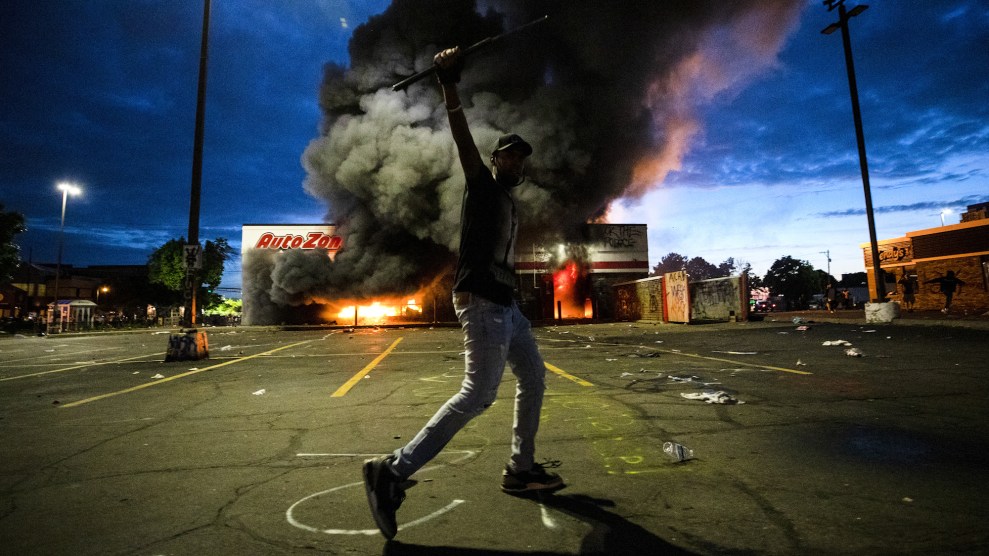
Richard Tsong-Taatarii/Star-Tribune/AP
Two years ago today, former Minneapolis police officer Derek Chauvin pressed his knee into George Floyd’s neck for nine minutes and 29 seconds.
The murder outraged the public, setting off a summer of pepper spray, rubber bullets, and torched police vehicles. It was a time of mourning and recrimination that also seemed to contain a real sense of possibility. People of all races, across the nation, joined rallies against police brutality. The Overton window seemed briefly to widen, with criminal justice advocates releasing wish lists of reforms that had previously been unthinkable. One of them became notorious: defunding the police.
Democratic lawmakers rushed to channel the energy of the protests into the upcoming elections. Conservative media figures thundered about lawlessness and warned their viewers that the dark-skinned figures on the screen would “come for you.” The left saw an opportunity for systemic change.
But for all the cries of the dangers of defunding the police, and of the radical agenda set off by the rage of two summers ago, we have not seen much concrete progress. In fact, we’ve often seen the opposite. Just as the radical edge of the 1960s sowed fear and spurred on the organization of a conservative movement—one that arose in the 1970s and attained full power in the next decade—we are again seeing the rise of a political force ruthlessly opposed to any attempt to create a different, more equal America.
That is to say, two years on, it’s clear: The backlash has arrived.
- Conservative state legislatures have passed laws making it illegal to teach children about America’s long history of Black subjugation. Others have criminalized the right to protest with some even making it legal for drivers, in specific conditions, to run over protesters.
- New York City, a progressive stronghold and the site of some of 2020’s fiercest marches, elected a former cop as its mayor who has reinstated the plainclothes unit disproportionately responsible for police shootings.
- After a surge of solidarity, support for Black Lives Matter has sagged as the founders of the organization—not synonymous with the wider movement—have been drawn into numerous scandals involving their book-keeping and use of donations.
- Progressive prosecutors, buoyed to victory by the forces driving the protests, have faced fierce reprisal and even recall elections.
Meanwhile, many reforms floated in the wake of the protests have been tabled.
- According to the Washington Post’s police violence tracker, 2021 was the deadliest year on record for fatal police shootings.
- A ProPublica investigation found that police departments have disclosed only 10 instances where officers who used force on protesters were disciplined. Disciplinary measures included a “written reprimand” and “two days without pay.”
- Members of the Minneapolis City Council who pledged to “dismantle” the city’s police department, walked back their promises, saying they meant the words” in spirit” but not in letter. The mayor, Jacob Frey, repeatedly lied about ending no-knock warrants.
- Today, Joe Biden is expected to unveil an executive order meant to combat excessive brutality, but it’ll be tough to square those reforms with the billions of dollars he allocated to expand law enforcement departments over the next decade.
In one of her worst and most offensive gaffes, Nancy Pelosi thanked Floyd for “sacrificing” himself for the cause of “justice.” Floyd, of course, did not see himself as a martyr. He spent his last moments begging for his life. But implicit in the Democratic leader’s remark was an assumption that his senseless murder would surely lead to some kind of reform.
Two years on, that reform is clear. It’s so popular that politicians of both parties have united around it, even at a time of historic polarization: Funding the police.













